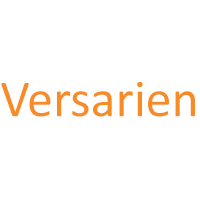Versarien Plc (LON:VRS), the advanced materials engineering group, has announced the receipt of an independent report produced by Ankara University, Turkey, detailing the results of a preliminary study of modified graphene materials provided by Versarien for use against SARS-CoV-2, the strain of coronavirus that causes coronavirus disease 2019, COVID-19. The Report concludes that the preliminary test results show that these materials significantly inhibit viral infection and possess anti-viral activity towards SARS-CoV-2.
The study was undertaken to test, in a laboratory environment, the hypothesis that graphene nanoplatelets doped with metal oxide nanoparticles, as produced by the Versarien group, can inactivate the SARS-CoV-2 coronavirus.
Two graphene nanoplatelet batches doped with different metal oxide nanoparticles, “GNA-22” and “GNA-24” were provided by Versarien to a team led by Dr Acelya Yilmazer Aktuna at Ankara University. These doped materials were produced using technology from Gnanomat, the Company’s subsidiary, and were then separately dispersed in a phosphate buffer solution by Ankara University and provided to an external Biosafety Level 3 laboratory for testing. The testing was carried out in-line with a protocol defined by Pezzoti et al., bioRxiv, 20 June 2020, in “Rapid Inactivation of SARS-CoV-2 by Silicon Nitride, Copper, and Aluminum Nitride”, a copy of which can be found at: https://doi.org/10.1101/2020.06.19.159970
In order to determine the antiviral effect of the materials provided, the level of inhibition of viral infection was assessed. Testing was carried out on VeroE6 cells containing SARS-CoV-2 and viral copy numbers were analysed in real time to demonstrate the level of SARS-CoV-2 inhibition of the aqueous suspensions of GNA-22 and GNA-24, compared to control samples not exposed to these modified graphene materials.
Initial results showed a log 4 reduction of SARS-CoV-2 using GNA 22 (approximately 99.99% inhibition) and a log 2 reduction using GNA 24 (approximately 99% inhibition). These results were statistically highly significant with a p-value of less than 0.0001.
The Report concludes that the results show that GNA22 and GNA24 significantly inhibited viral infection and suggests that these materials possess antiviral activity towards SARS-CoV-2.
Neill Ricketts, CEO of Versarien, commented: “While we must stress that these results have been achieved under laboratory conditions, they do demonstrate that our hybrid graphene nanomaterials have the potential to provide protection from COVID-19. The results provide us with sufficient levels of confidence for our combined Gnanomat and 2-DTech teams to move to rapid testing of these materials in real-world applications as diverse as face masks, clothing and surface treatments, together with investigating the protection that they can provide from other viruses and bacteria.
“I would like to thank Dr Yilmazer Aktuna and her team at Ankara University for the work they have undertaken. We will continue to work with them on further projects to investigate the anti-viral properties of our materials and their applications.”


